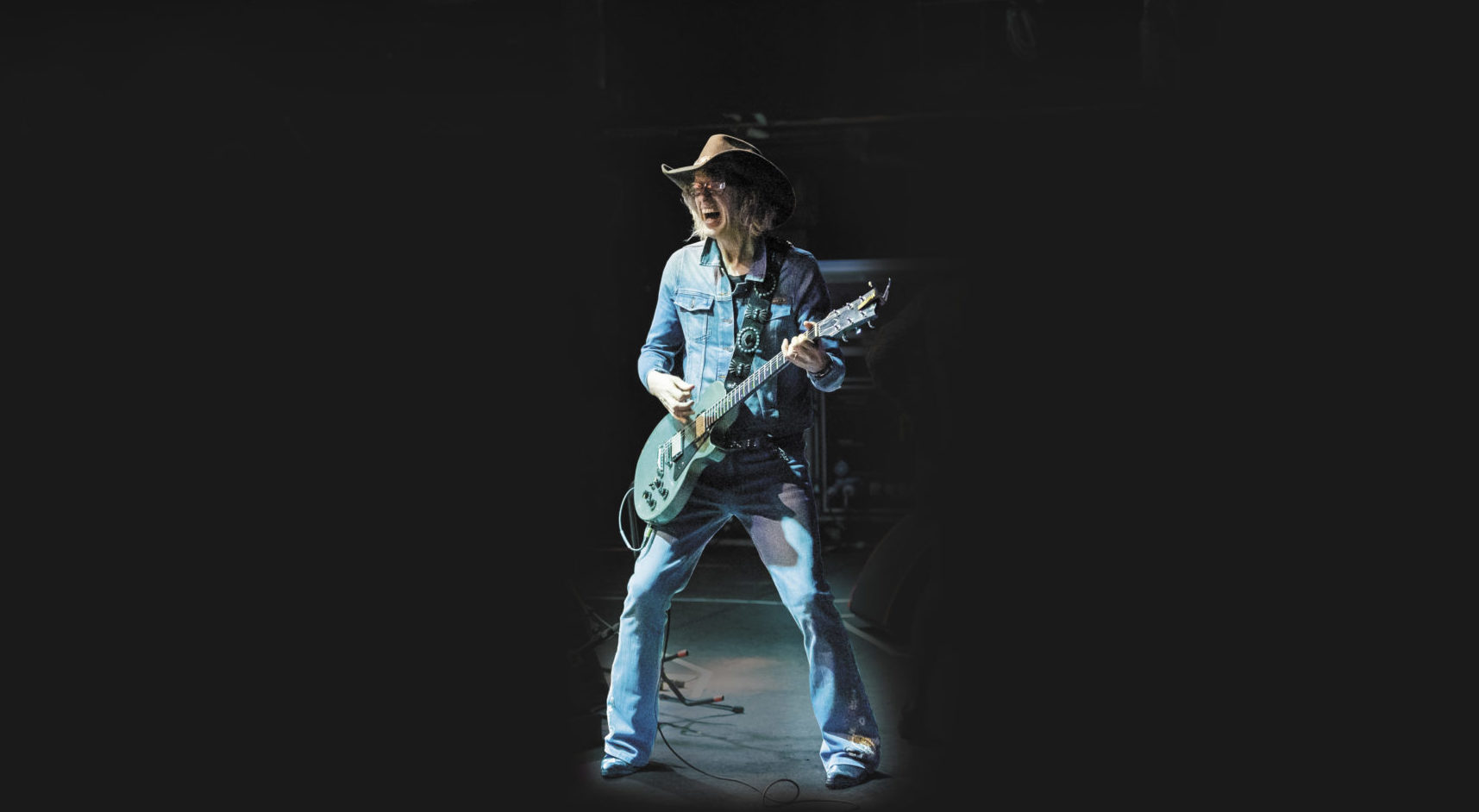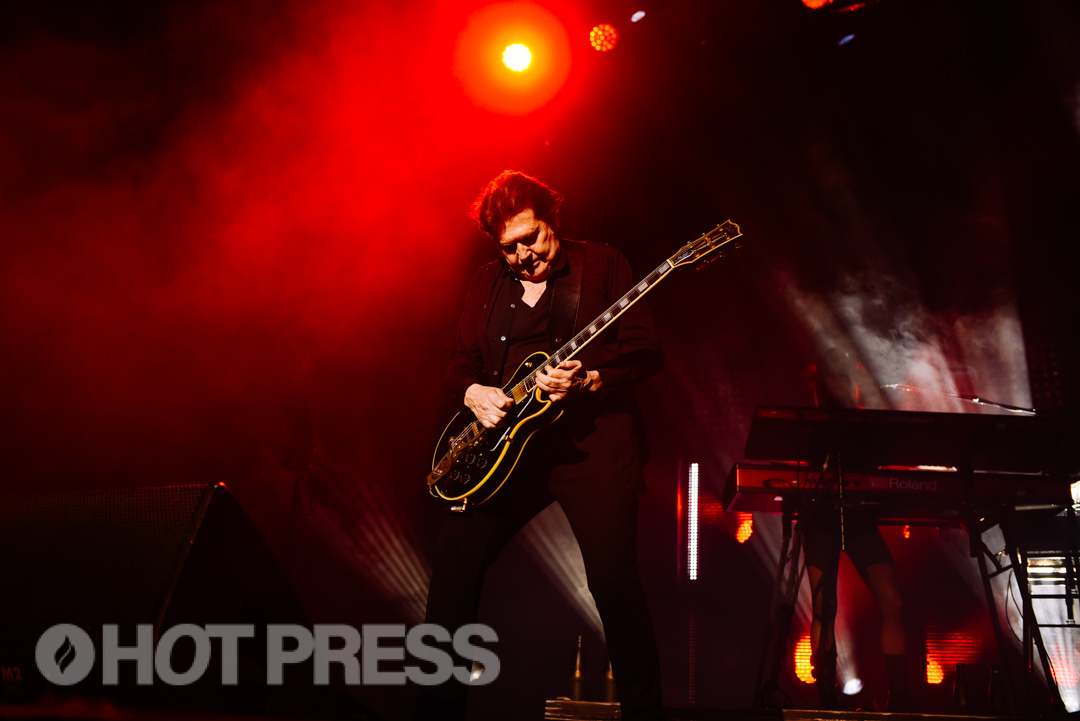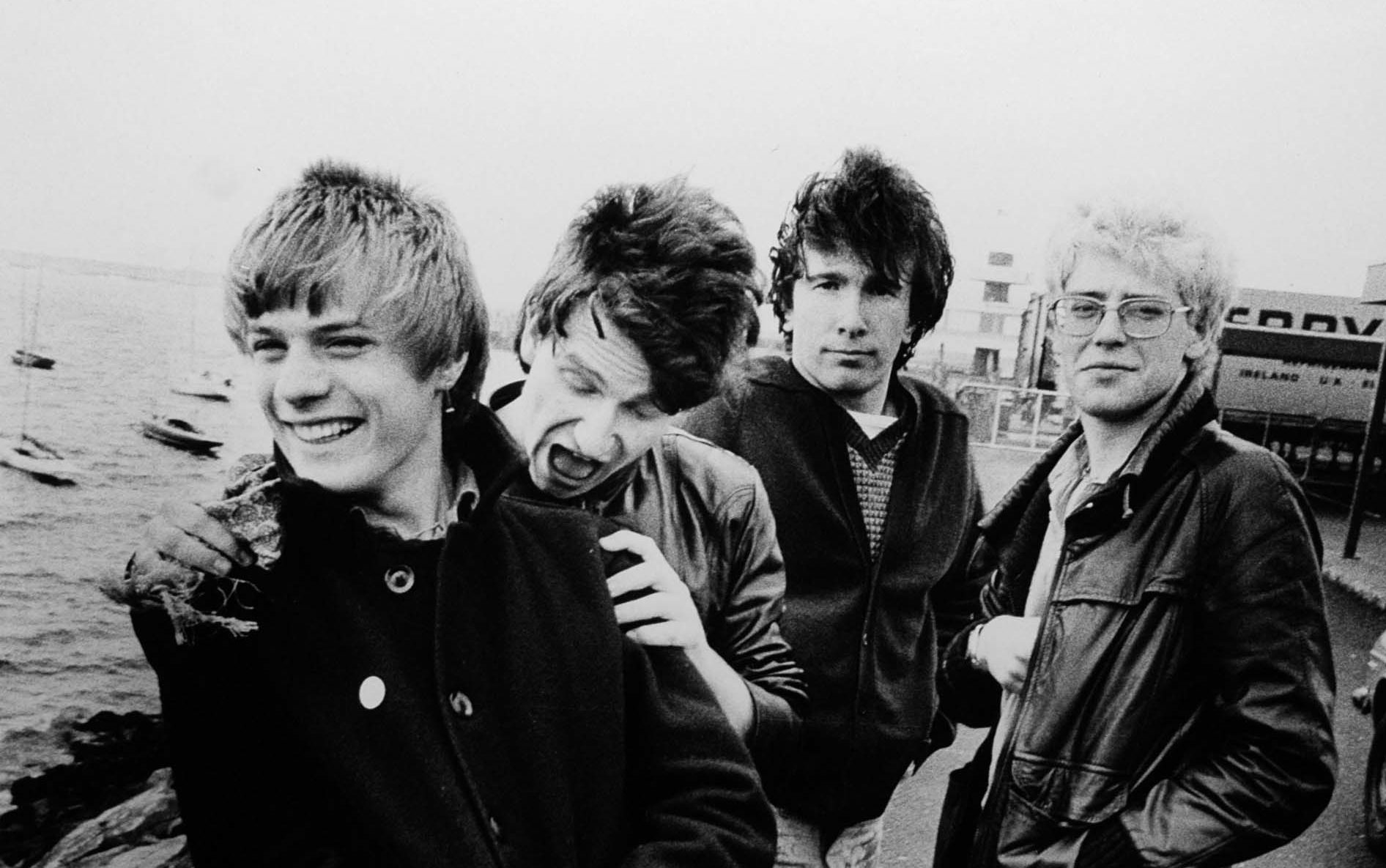- Culture
- 26 Jul 22

You know how it goes – you’re in the pub sounding off about your favourite new act, when a mate asks if you’ve yet become acquainted with the era-defining grindcore scene. It’s fair to say musical genres have come and gone at a furious pace since Hot Press first arrived, but some have had a lot more staying power than others. We look at a selection of the most essential movements from the past 45 years, and hear from a few of the key participants along the way...
In the early 1980s, the twin spirits of punk and disco were flailing, and the shiny pop chops of the New Romantics were the pre-eminent chart force, every episode of Top of the Pops revealing a new set of young men with lacquered, spiky hair and warbling cheekbones, whose songs sounded pretty on the surface but meant very little underneath. And then, consciously or otherwise tapping into the epic spirit championed by Bruce Springsteen and the E-Street Band during the 1970s, a slew of rock bands emerged, with huge ideas, bigger hair and enormous hearts on their sleeves.
‘The Big Music’, the lead single from The Waterboys’ second album, 1984’s superb A Pagan Place, came to symbolise an entire genre of music which flourished throughout the following decade. Its proponents also became the biggest bands in the world, stadium-filling giants who symbolised rock for an entire generation, and whose influence is writ large on modern music.
 Mike Scott of The Waterboys by Paul MacManus
Mike Scott of The Waterboys by Paul MacManusChief Waterboy Mike Scott subsequently described the Big Music sound as “a spiritual calling, nothing more, nothing less.” While such a statement might be endorsed by some of the genre’s other leading contenders, whose songs frequently referenced the almighty, religious or spiritual devotion wasn’t a prerequisite for making music this monumental.
Advertisement
Neither Big Country nor Simple Minds were bothered with deities in their lyrics, yet their output had its grandiose moments: for confirmation, check out the former’s ‘In A Big Country’ or ‘Look Away’, and the latter’s ‘Alive And Kicking’ or ‘Someone, Somewhere (In Summertime)’.
The Minds’ ‘Don’t You (Forget About Me)’ became one of the defining songs of the decade (particularly thanks to its place in John Hughes’ 1985 film, The Breakfast Club), on a par with The Waterboys’ classic ‘The Whole Of The Moon’ from their near flawless 1985 opus, This Is The Sea. This was epic, poetic stuff, high on drama, with huge booming drums, soaring singalong vocals and monumental guitars. And it conquered the world.
 Simple Minds at 3Arena. 17th of April 2022. Copyright Miguel Ruiz.
Simple Minds at 3Arena. 17th of April 2022. Copyright Miguel Ruiz.Good as these bands were, U2 soared to even greater heights. A slew of brilliant albums, a wonderfully quotable frontman and that performance at Live Aid in 1985, helped four northside Dubliners to become the biggest band – and the most important – of their generation. U2’s star had been steadily in the ascendant. 1983’s War had turned them into an arena act in the US, providing them with both the anti-war anthem, ‘Sunday Bloody Sunday’, and spiritual singalong, ‘40’, whose lyrics were lifted from the psalm of the same number.
The following year, The Unforgettable Fire cemented their reputation as purveyors of Big Music, with ‘Pride (In The Name Of Love)’ and ‘Bad’ standing as enduring anthems to this day. It was really 1987’s The Joshua Tree, however, and its subsequent triumphant stadium tour, that catapulted them to world dominance. We can still remember the excitement when they made the cover of Time magazine, who dubbed them “Rock’s hottest ticket” in April 1987.
There were times when the sincerity and hand-wringing of some of the proponents of The Big Music became a tad overblown. Perhaps U2 sensed as much. As the ‘80s ended, Bono revealed that U2 were going away to “dream it all up again” – and they duly careered in a different direction entirely on their acclaimed 1991 tour-de-force, Achtung Baby.
Advertisement
 U2.
U2.But it would be wrong to think that the Big Music had been put out to pasture. Bruce Springsteen didn’t just endure, he became ever-stronger, showing how powerful and poetic The Big Music could be, and how lasting. REM and Manic Street Preachers moved the impulse forward in different ways. In their own inimitable style, U2 still carried the torch, amid all their stylistic shape-shifting. And, more recently, Coldplay and Snow Patrol tapped into the same seam, writing songs of extraordinary, radio-friendly power – the Bangor outfit, with Gary Lightbody to the fore, penning the most played song of the 21st Century on UK radio in ‘Chasing Cars’. The Big Music doesn’t come much bigger...
Read the full Every Breaking Wave feature in the 45th Birthday issue of Hot Press, out now:










